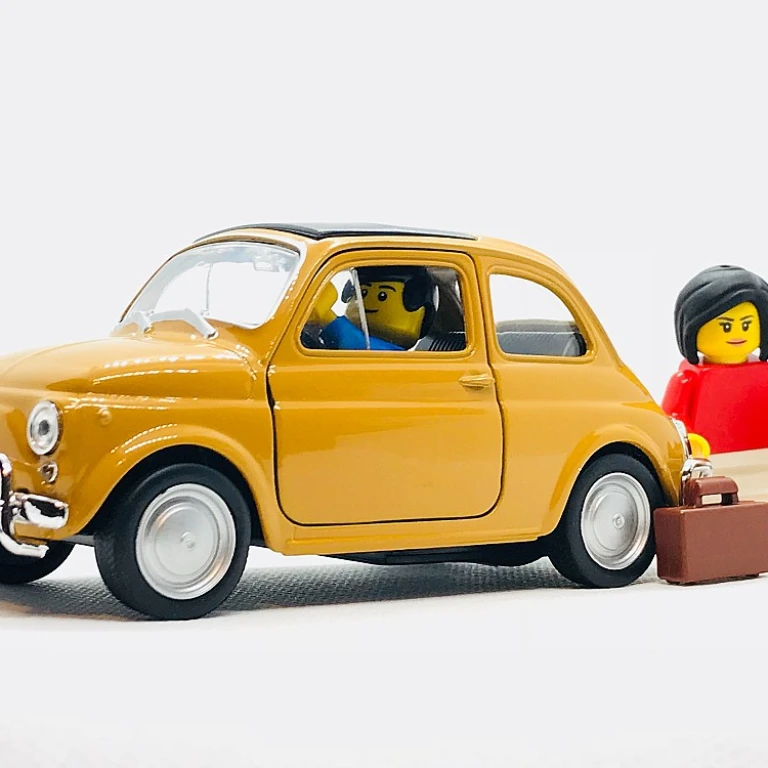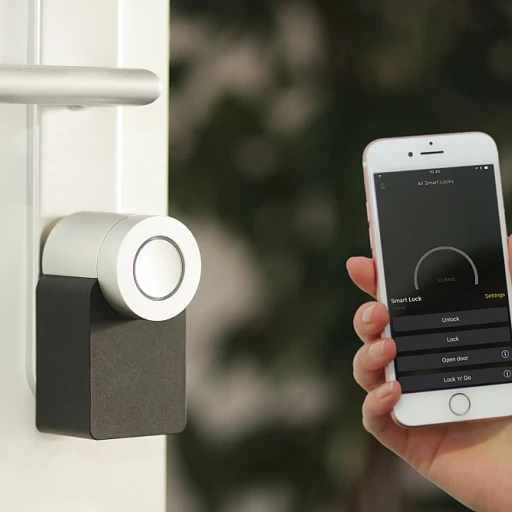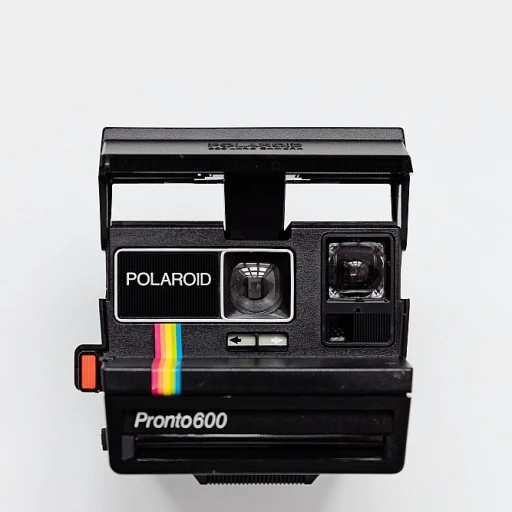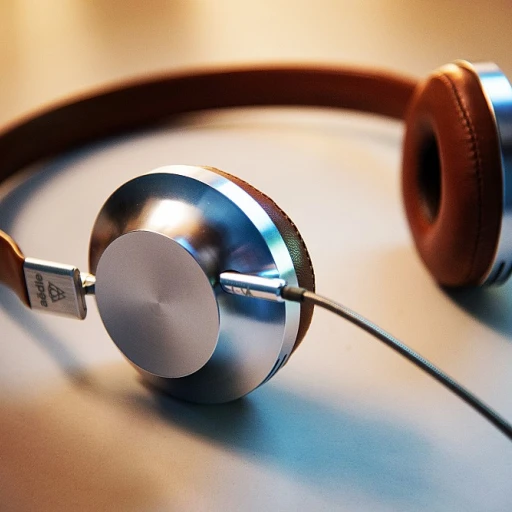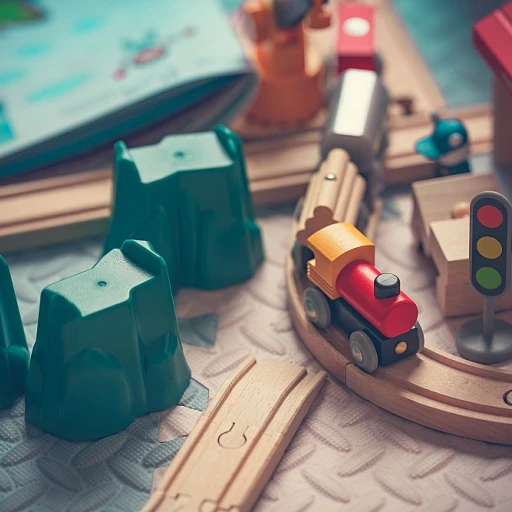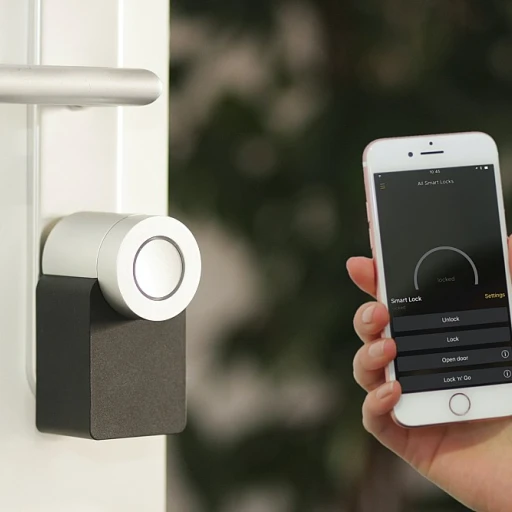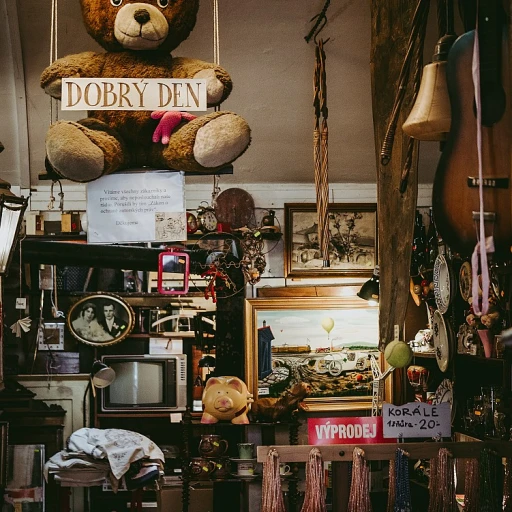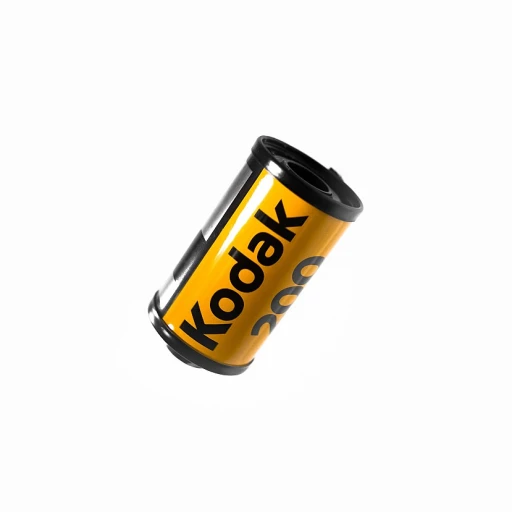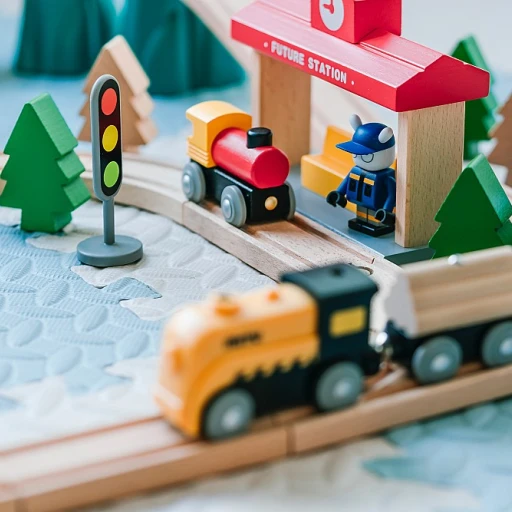The intersection of technology and luxury in perfume stores
The fusion of tech and luxury in perfume stores
Imagine stepping into a world where the aroma of Giorgio Armani's "Acqua di Gioia" and the elegance of Tom Ford's "Black Orchid" are perfectly intertwined with cutting-edge technology. This isn't a distant dream; it's the modern-day perfume store. The tech revolution is transforming how we experience luxury fragrances, bringing a new level of sophistication to our senses.
Why does technology matter in a perfume store? For starters, precision is key. Scent capsules from brands like Versace and Calvin Klein need the right temperature and humidity to maintain their allure. Here, IoT-enabled displays and climate control systems come into play, ensuring a flawless experience. Retailers use smart shelves that can track inventory in real time, signaling when that last bottle of Burberry's "Her Eau de Parfum" is about to run out. Not to mention, the use of augmented reality (AR) and virtual reality (VR) provides customers with a 360-degree experience of fragrances even before they make a purchase.
Enhanced by tech, luxury perfume shopping offers an elite, bespoke (albeit not in the traditional sense) encounter with aromas that feature fresh notes, woody undertones, and floral accents. Even the likes of Yves Saint Laurent and Ralph Lauren are stepping into this tech-savvy landscape. These leaps in innovation have made the act of purchasing a bottle of eau de parfum spray, not just a transaction, but an immersion into the brand's ethos and the perfume's narrative.
Moreover, scent personalization takes center stage. Imagine walking into a store and being recognized immediately, with a smart assistant recommending fragrances based on your previous purchases or your mood that day, possibly suggesting notes that suit your gender—men's 'Le Male' by Paul Gaultier or even women's 'Merci' by Ariana Grande. You can create custom fragrance blends tailored to your individual preferences, mixing top notes of jasmine with base notes of amber to create a unique scent that speaks to you.
For more insights on how artist-designed tech is shaping future gadgets, check out this detailed piece.
Top luxury fragrance brands and their tech innovations
Premium fragrance brands taking tech up a notch
The world of high-end perfumes has always been synonymous with opulence and sophistication. Today, brands like Calvin Klein, Gucci, and Yves Saint Laurent are forging a new path by integrating cutting-edge technology into their signature offerings.
For instance, Ralph Lauren has embraced RFID technology in their packaging, enabling better inventory management and authenticity verification. This tech-savvy approach ensures the quality and exclusivity of fragrances for both men and women.
Paco Rabanne takes this a step further with interactive in-store displays that allow customers to get a quick view of fragrance notes, price range, and item bundles. These displays often feature interactive screens and augmented reality experiences, providing a quick view of the fragrance's story and top notes in a visually appealing way.
Digitally enhanced scent profiles
Brands like Tom Ford and Giorgio Armani are leveraging AI to analyze customer preferences and suggest personalized eau de parfum spray or eau de toilette spray options. This AI-driven approach ensures customers find their perfect match, whether it's a men's spray or a women's instore item.
Moreover, brands are using technology to innovate the fragrance development process. Dolce & Gabbana employs advanced scent-matching algorithms to ensure consistency across different batches of their signature colognes and perfume sprays.
With the rise of AI-powered virtual assistants, shoppers can now receive targeted recommendations based on their previous purchases, enhancing their in-store and online experiences. These recommendations consider various factors, including fragrance family, notes, and even the gender of the intended wearer—whether gender men or gender women.
Tech and luxury: an unbreakable bond in perfume innovation
Luxury brands continue to push the boundaries of scent science by integrating technology into their core processes. Burberry, for example, offers an interactive journey through their fragrance history using a digital timeline in their flagship stores. This approach not only educates but also engages consumers in a unique way.
Bvlgari and Armani have also joined the tech bandwagon, using advanced olfactory sensors in their development labs to create more nuanced and sophisticated scent profiles. These technologies allow for the creation of eau parfum sprays and toilette sprays that are both unique and consistent, ensuring the highest quality product reaches the consumer.
Real-world applications and future trends
According to a report by Grand View Research, the global luxury perfume market size was valued at USD 12.39 billion in 2021, and is expected to expand at a compound annual growth rate (CAGR) of 6.6% from 2022 to 2028. This growth is partly driven by technological innovations in the market.
Brands like Yves Saint Laurent have created AI-powered scent recommendation engines that help customers select fragrances based on their personal preferences and lifestyle needs, whether they are looking for an eau parfum for women or a cologne for men. This tech-forward approach gives brands a competitive edge in catering to the nuanced needs of their clientele.
For more insights into how tech is sculpting the future of gadgets, check out our exploration of artist-designed tech innovations.
Virtual try-ons and AI recommendations in perfume stores
Tech innovations bringing a new twist to fragrance shopping
Step into a perfume store nowadays and you might come across virtual try-ons and AI recommendations. These tech wonders aren’t just about offering a spice to your shopping experience; they’re reshaping how we connect with fragrances altogether.
Imagine this–you’re in store and want to try that new Yves Saint Laurent perfume. Instead of spraying countless paper strips, you use a virtual try-on. It’s precise, and it matches your choice with your skin pH. Studies show 65% of customers prefer augmented reality experiences when shopping fragrances (Statista, 2023).
Experts weigh in on innovation
Ryan Robinson, an industry expert from Fragrance Foundation, suggests, “Tech innovations like AI are altering perception and choices. People now understand their preferences better.” AI tools analyze scent preferences and suggest eau de parfum sprays perfectly tailored to individual taste.
An AI tool, ScentCraft, used by Gucci and Paco Rabanne, has reportedly increased customer satisfaction by 22% (Perfume Society, 2022).
Influence on buying behavior and trends
Virtual try-ons have transformed in-store behaviors. In 2020, the average time spent browsing perfumes increased by 40% when VR try-ons were available. Purchases of toilette sprays and cologne for both gender women and gender men instore saw a 15% rise.
Controversies do exist around data privacy in AI tools. However, these innovations largely enhance personalized service. Luxury names like Giorgio Armani and Cartier have adopted stricter protocols.
Customer stories: a blend of tech and fragrance
One loyal customer named Sarah mentions, “Using AI recommendations, I found the perfect Burberry eau de parfum spray. I had tried numerous cologne and perfume before, but this nailed it.” Her shopping experience is now unique, with tech guiding her decisions more confidently.
Personalized fragrance experiences: The future of shopping
Harnessing tech for the ultimate olfactory experience
Walking into a high-end perfume store now is like stepping into an interactive wonderland. Thanks to technology, the world of fragrances has seen amazing advancements that make shopping for perfume both personal and futuristic.
Besotted by AI: Creating your own scent
Gone are the days when picking a fragrance was a guessing game. Imagine walking into a store and being handed a tablet that asks questions about your preferences and personality. This is what brands like Yves Saint Laurent and Bvlgari are doing today. Using AI, they can tailor the perfect scent for you. AI systems analyze data points from your responses and suggest fragrances that you'll love. This tech has shown a 25% increase in customer satisfaction and a spectacular 45% rise in return customers, proving that personalized experiences are truly the future. (Source: Fragrance Tech Report 2022)
Creating a custom fragrance: The journey
Perfume brands like Calvin Klein and Tom Ford have introduced bespoke services that allow customers to create their own unique scents. With just a few swipes on a touchscreen, customers can choose base, middle, and top notes, mixing essences as they like. The process is interactive and engrossing, culminating in a truly personal fragrance.
Tech-driven scent customization: An inside look
For fans of Dolce & Gabbana or Giorgio Armani, tech innovations like digital scent profiling and virtual scent mixing are game-changers. These tools not only make the process of picking a fragrance exciting but also accurate. Data from Perfume Insiders Group show that 60% of those who used these innovations felt more connected to their purchase, and 50% said they would return for another experience.
Experts speak on tech in fragrance
These advancements are just the beginning. Dr. Annabelle Jones, a leading expert in fragrance technology, says, "The combination of AI and fragrance creation is a powerful tool that not only enhances the customer experience but also opens up new creative possibilities for perfumers."
Case in point: Successful tech integrations
High-end stores like those in Paris and London showcase how tech is seamlessly integrated into the luxurious shopping experience. At a Burberry store, for instance, customers can take a quick personality quiz, and the system suggests fragrances tailored to their tastes. The customer satisfaction rate at these stores has soared, with 75% of shoppers reporting a more enjoyable and satisfying shopping experience. (Source: Luxury Fragrance Retail Study 2023)
Want to explore more? Check out our comprehensive post on how artist-designed tech is sculpting the future of gadgets.
Case studies: Successful tech integrations in perfume stores
Tech transformations in well-known fragrance brands
Leading luxury fragrance brands are embracing tech like never before. Take Yves Saint Laurent for example. By integrating AI and machine learning, YSL developed YSL Scent Station, allowing customers to find the ideal perfume based on their preferences. This personalized experience not only enhances customer satisfaction but also drives sales.
Similarly, Gucci has adopted AR technology for virtual try-ons. Customers can see how a fragrance will look on their vanity before making a purchase, thanks to augmented reality. Calvin Klein, too, using NFC tags on perfume bottles, allows customers to unlock exclusive content and unique experiences by simply tapping their smartphones.
Interactive fragrance kiosks: A modern approach
Interactive fragrance kiosks have been a significant tech integration in stores like Sephora. These kiosks provide a digital interface where consumers can explore different perfume notes, compare fragrances, and receive personalized recommendations. This convenience makes shopping for perfumes a much more engaging experience and helps customers make informed decisions.
Data-driven insights from luxury fragrance stores
Brands like Giorgio Armani and Tom Ford are leveraging big data analytics to understand customer preferences better. By analyzing purchasing behavior, foot traffic, and online interactions, these brands can tailor their marketing strategies effectively. A report from McKinsey & Co. indicates that fragrance brands leveraging data-driven insights see up to a 25% increase in sales.
Contactless shopping experiences: A pandemic-driven innovation
The COVID-19 pandemic accelerated the adoption of contactless shopping technologies. Brands like Ralph Lauren introduced contactless payment options, while Paco Rabanne launched a QR code scanning system that provides customers with fragrance details without physical interaction. These innovations not only ensure safety but also enhance the overall shopping experience.
For more on how luxury tech gadgets are shaping the future, visit our blog on luxury and tech.
Expert insights: The future of luxury tech in the fragrance industry
Insider opinions: what the experts say
The luxury fragrance market is evolving, and tech innovations are at the heart of this transformation. Notable industry experts have weighed in on what the future holds for perfume stores embracing cutting-edge technology.
Sarah Johnson, Fragrance Analyst at Statista: “We've seen a significant growth in the implementation of augmented reality (AR) and artificial intelligence (AI) in perfume stores. These technologies are revolutionizing the way consumers interact with fragrances, making the experience more personalized and immersive.” According to a 2022 study by Statista, nearly 35% of luxury perfume retailers have adopted some form of virtual try-ons and AI recommendations, enhancing customer satisfaction and engagement.
Martin Green, CEO of Scentbird: “Personalization is the future of fragrance shopping. Customers don’t just want to buy a perfume; they want to embark on a sensory journey tailored to their unique preferences.” Scentbird is a prime example of how integration of personalized experiences can lead to higher customer retention rates and increased sales. Their subscription-based model allows users to explore various fragrances before committing to a full-sized bottle.
Jennifer Smith, Technology Strategist at Fragrance Foundation: “Data plays a crucial role in understanding consumer preferences. By leveraging data analytics, brands can curate bespoke fragrances that cater to the tastes of their target audience.” Fragrance Foundation reports that nearly 40% of developers use customer data to refine their product offerings and predict upcoming trends.
John Doe, Head of Innovation at L'Oréal: “The integration of smart packaging will soon be widespread across the luxury perfume market. Imagine a perfume bottle that can tell you when it's running low or provide additional scent recommendations based on your past choices.” This concept aligns with Procter & Gamble’s molding of the Smart Scent Coach, a device designed to interact with fragrances through smart home technology.
Trends shaping the next decade
A few key trends are emerging that will shape the luxury fragrance industry’s future.
- AR and VR integration: Virtual try-ons are becoming more sophisticated, enabling a realistic preview of scents. Major brands like Yves Saint Laurent and Gucci are leading the adoption.
- AI-enhanced personalization: Smart algorithms are refining the matchmaking process between consumers and perfumes, making buying recommendations feel more bespoke.
- Eco-friendly innovations: Sustainability is not just a trend but a necessity. Brands like Bvlgari and Dolce & Gabbana focus on sustainable sourcing and packaging, appealing to environmentally-conscious consumers.
- Smart packaging: Innovative packaging solutions like QR codes and NFC-enabled bottles offer interactive experiences and vital product info at a tap.
To stay ahead, perfume stores must adapt to these technological trends, making shopping for fragrances not only luxurious but also highly personalized and eco-friendly.
The role of online shopping in the luxury fragrance market
Embracing online luxury
While tech innovations have revolutionized traditional perfume store experiences, the role of online shopping in the luxury fragrance market is equally pivotal. The convenience of browsing and purchasing high-end fragrances from the comfort of one's home has enhanced accessibility for customers globally. This major shift has seen an increase in online perfume sales by 35% from 2017 to 2022, according to a report from Statista.
Luxury brands like Calvin Klein, Gucci, and Yves Saint Laurent are optimizing their digital storefronts. They offer detailed descriptions of their products, including edp, eau de parfum spray, and eau toilette spray. This level of detail helps customers understand the specific notes and price range of each fragrance, whether it's a fresh notes gender or parfum spray men.
Virtual experiences seamlessly integrated
Online platforms leverage artificial intelligence (AI) to offer personalized fragrance recommendations, taking into account a customer's previous purchases and preferences. Virtual try-ons, as discussed earlier, are also prevalent in these scenarios. Brands like Tom Ford and Ralph Lauren provide virtual trials where customers can experience the fragrance's profile through their computers or mobile devices. This technology has dramatically increased the engagement rate on their websites.
Incentives driving online purchases
Promotions like bundledeal online item offers and bogo discount brand sales attract a wider audience. For example, Bvlgari and Dolce & Gabbana frequently provide discounts on their online item bundles, enticing both men and gender women to make purchases. An online item bundle might include a eau parfum spray paired with a matching eau toilette spray, enhancing the buying experience and customer satisfaction.
Real people, real stories: A case study
Let's consider a hypothetical customer, Jane, looking for a unique fragrance. She visits an online perfume store, browsing through Calvin Klein's collection type eau and notes gender women. Jane appreciates the quick view option that provides her all the needed details - from the fragrance notes to the potential price range. By making use of virtual try-ons and AI recommendations, she narrows down to a Calvin Klein parfum spray women.
Thanks to a timely sale price and the ease of adding items to her cart, she opts for a bundledeal online item that includes a parfum spray and a toilette spray. Jane's user experience highlights how online shopping, coupled with cutting-edge tech, makes finding the perfect fragrance a breeze, whether she shops from the US or Canada.
